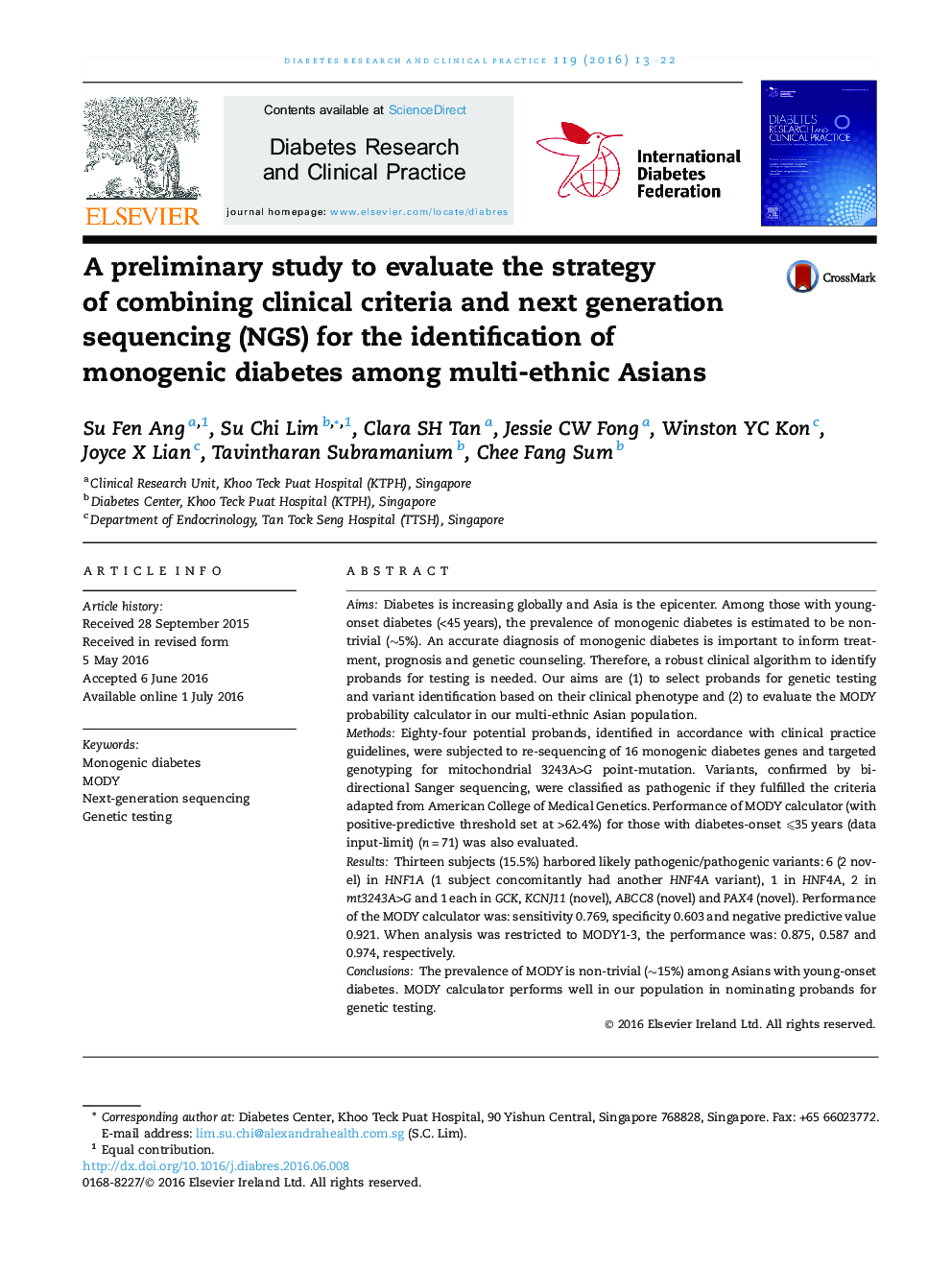| کد مقاله | کد نشریه | سال انتشار | مقاله انگلیسی | نسخه تمام متن |
|---|---|---|---|---|
| 5898873 | 1568796 | 2016 | 10 صفحه PDF | دانلود رایگان |

- Genetic testing was conducted for Asians exhibiting MODY clinical phenotypes.
- 15.5% of our study cohort harbored likely pathogenic/pathogenic variants.
- Prevalence of MODY is non-trivial among Asians with young-onset diabetes.
- MODY probability calculator (Exeter, UK) performed relatively well in our multi-ethnic cohort.
AimsDiabetes is increasing globally and Asia is the epicenter. Among those with young-onset diabetes (<45 years), the prevalence of monogenic diabetes is estimated to be non-trivial (â¼5%). An accurate diagnosis of monogenic diabetes is important to inform treatment, prognosis and genetic counseling. Therefore, a robust clinical algorithm to identify probands for testing is needed. Our aims are (1) to select probands for genetic testing and variant identification based on their clinical phenotype and (2) to evaluate the MODY probability calculator in our multi-ethnic Asian population.MethodsEighty-four potential probands, identified in accordance with clinical practice guidelines, were subjected to re-sequencing of 16 monogenic diabetes genes and targeted genotyping for mitochondrial 3243A>G point-mutation. Variants, confirmed by bi-directional Sanger sequencing, were classified as pathogenic if they fulfilled the criteria adapted from American College of Medical Genetics. Performance of MODY calculator (with positive-predictive threshold set at >62.4%) for those with diabetes-onset ⩽35 years (data input-limit) (n = 71) was also evaluated.ResultsThirteen subjects (15.5%) harbored likely pathogenic/pathogenic variants: 6 (2 novel) in HNF1A (1 subject concomitantly had another HNF4A variant), 1 in HNF4A, 2 in mt3243A>G and 1 each in GCK, KCNJ11 (novel), ABCC8 (novel) and PAX4 (novel). Performance of the MODY calculator was: sensitivity 0.769, specificity 0.603 and negative predictive value 0.921. When analysis was restricted to MODY1-3, the performance was: 0.875, 0.587 and 0.974, respectively.ConclusionsThe prevalence of MODY is non-trivial (â¼15%) among Asians with young-onset diabetes. MODY calculator performs well in our population in nominating probands for genetic testing.
Journal: Diabetes Research and Clinical Practice - Volume 119, September 2016, Pages 13-22